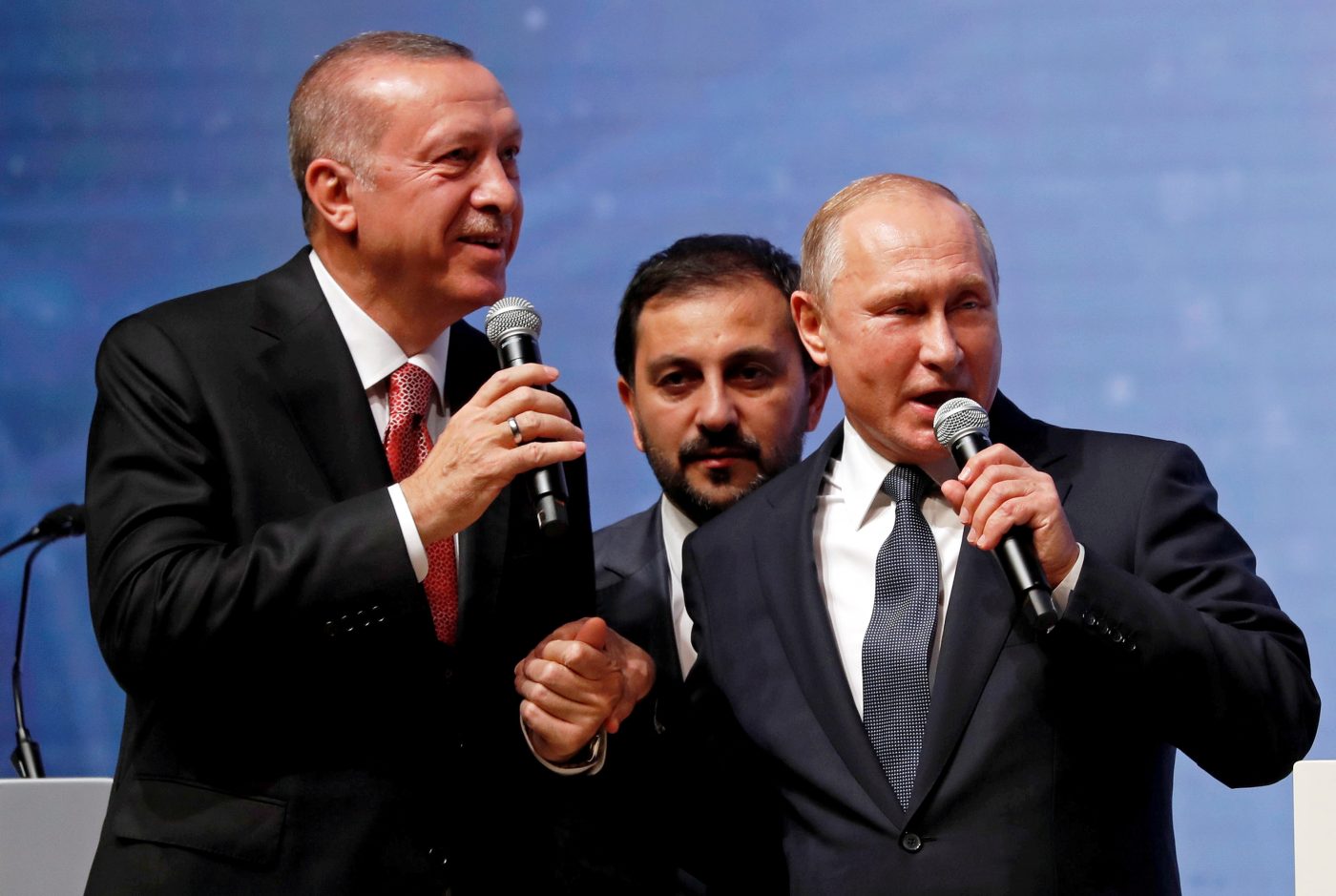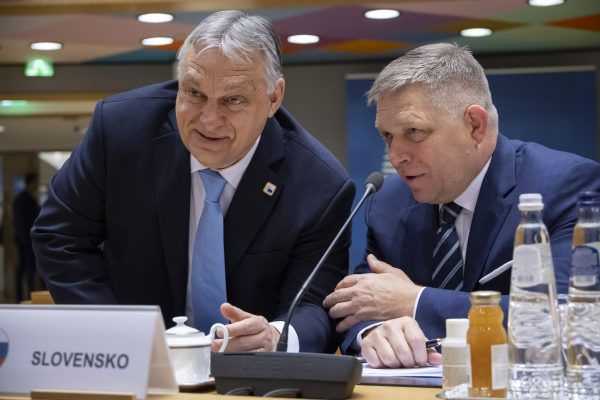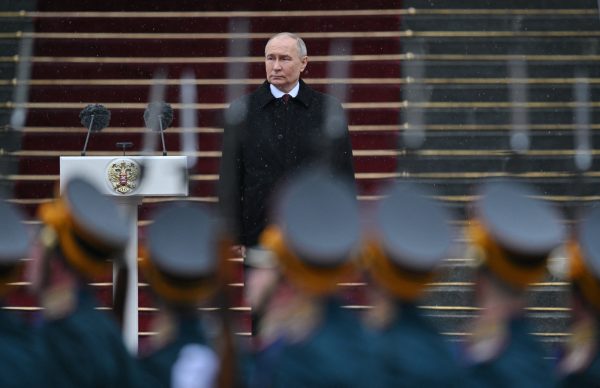Turkish President Recep Tayyip Erdoğan failed to restore grain flows in his September 4 meeting with Vladimir Putin. He did, however, agree to energy links that will help his country and harm European efforts to end Russian gas supplies.
Ahead of their meeting in Sochi, the first in-person discussion between the two leaders in a year, Turkish expectations had been high for an end to the impasse over the Black Sea grain deal. Erdoğan chief foreign and security policy advisor Akif Çağatay Kılıç said there was “cautious” hope that a deal could be reached.
In the event, Erdogan’s hopes of convincing Putin to restore Russia’s participation fell flat. An 11th-hour Turkish-UN proposal to reinstate the Russian Agricultural bank Rosselkhozbank to the SWIFT payments system proved insufficient, as Putin demanded more extensive sanctions relief.
Even Putin’s plan to distribute a million tons of grain to Turkey and Qatar, which was intended for food-insecure Global South countries, seemed stillborn. While the Russian Foreign Ministry confirmed this plan would proceed on September 6, it admitted to uncertainties about financing and logistics, and — as critics have pointed out with some scorn — it pales in comparison to the original grain deal which aimed to ship 30m tons of Ukrainian agricultural exports.
Erdoğan’s still-more ambitious goal of reasserting Turkey’s role as a conflict mediator in Ukraine also failed. Duma Deputy Elena Panina, a member of Putin’s United Russia party, claimed “Putin put Erdoğan in his place” and mocked his claims he was on a “special” mediating mission in Sochi. Panina argued Russia’s choice of Qatar to implement its grain export plan showed “the Turks are not trusted,” adding that China and the African Union had displaced Turkey as peacemakers.
Turkish Daily Sabah commentator Mehmet Celik put a more positive spin on Erdoğan’s trip, saying it would allow him to convey Russia’s demands to Western leaders at the G20 Summit and September’s UN General Assembly meeting in New York. But even among Erdoğan’s supporters in Ankara, Russia’s obstructionist and dismissive attitude to diplomacy surely did not go unnoticed.
Former Kremlin advisor Sergei Markov claimed that, after the Sochi meeting, Erdogan told the US that “Putin was not ready for any negotiations on a truce.”
Despite its failures, the Erdoğan-Putin meeting was not wholly fruitless.
In the months leading up to the summit, Russian ultranationalists had stoked friction between the two countries, and by inviting Erdogan to Sochi, Putin countered their escalatory rhetoric and compartmentalized tensions over the grain deal, Turkey’s release of Azov Regiment fighters and Erdogan’s support for Ukraine’s NATO accession.
Malaysia Airlines Flight-17 perpetrator Igor Girkin, for example, had described Turkey as “our most dangerous military adversary” after Erdoğan’s re-election and warned that Turkey served as an “Islamist hub” that recruited anti-Russian terrorists and sheltered “a dozen different Russian-speaking radical Islamist bloggers.”
Sergey Mardan, a popular Russian radio host, called Erdoğan a “cardboard cutout” with unrealistic global ambitions and expressed buyer’s remorse for Russia’s support for his re-election.
Although Erdoğan’s post-election foreign policy is widely described to be Western-centric, critics of the US hegemony, like Ankara Social Sciences University Professor Muhammet Koçak, welcomed the de-escalation demonstrated at Sochi.
The most significant breakthroughs were bilateral and related to energy. Putin confirmed that Rosatom’s Akkuyu nuclear reactor on Turkey’s Mediterranean coast would be operational in 2024 and, even more importantly, announced progress toward Russia’s creation of a gas export hub in the country.
In October, Russia held talks with Turkey on creating a gas hub in Thrace, which would compensate for revenue losses from the sabotaged Nord Stream pipeline. During Erdogan’s visit to Sochi, Gazprom handed its plan to construct the hub to Turkey’s government-owned BOTAŞ gas company, and Putin highlighted the hub’s potential to export Russian gas to third countries.
Oguzhan Akyener, the president of Turkey’s Energy Strategies and Policies Research Center, argued the hub should also facilitate the export of Turkish gas discoveries in the Black Sea. Optimism also prevailed in Moscow, though Russian commentator Vladimir Avatkov expressed concern about Turkey’s reluctance to directly confront “Western lobbyists” seeking to derail the project.
The Western critics he is referring to regard the hub plan as a means to covertly ship Russian gas into Europe after Gazprom’s share of that huge market plunged from 40% to 10%. In return for this significant geopolitical gift to Putin’s regime, inflation-wracked Turkey would get cheaper energy from the Kremlin.
Both men had other issues to discuss. Putin is pushing Erdoğan to enter a rapprochement with Bashar al-Assad, who rules the ruins of Syria, where Turkey may be interested in a joint effort to crush the Kurdish forces backed by the US. Both countries also have forces in another devastated Arab country, Libya, where the now-leaderless Wagner Group and Turkey back different sides.
Both also have an interest in the South Caucasus, where war is threatened again between Armenia and Azerbaijan. In Niger, at least, they agree — sharing opposition to a military intervention in Niger by the Economic Community of West African States (ECOWAS), which has created an opportunity for policy coordination in the Sahel.
All of which makes the point that there is much to discuss and that two men who like to identify as strongmen leaders will go on talking. It’s just that the victims of Russia’s war of aggression, the developing world poor and the Ukrainian people, won’t get much of a look in.
Dr. Samuel Ramani is a tutor of politics and international relations at the University of Oxford, where he received his doctorate in March 2021. He is also a geopolitical analyst and commentator, and an Associate Fellow at RUSI.
Europe’s Edge is CEPA’s online journal covering critical topics on the foreign policy docket across Europe and North America. All opinions are those of the author and do not necessarily represent the position or views of the institutions they represent or the Center for European Policy Analysis.





